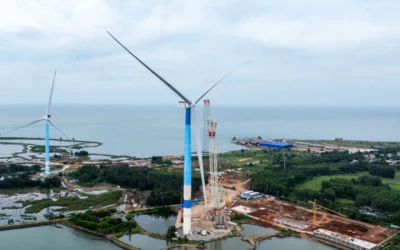New research by Canadian telematics firm, Geotab, has shone new light on the durability of electric vehicle (EV) batteries. Contrary to long-held beliefs about the need for battery replacements and rapid battery degradation, Geotab’s latest study suggests that EV batteries could potentially last up to 20 years before becoming unusable.
Battery Degradation Myths Debunked
Historically, electric vehicle batteries have been perceived as having limited lifespans, requiring replacements every few years—a notion that has hampered broader adoption. Addressing these myths, Geotab’s research takes into account the inevitable degradation of these batteries, asserting that advancements have led to significantly improved longevity.
Their updated data indicates a notable reduction in the annual degradation rate of EV batteries, now averaging 1.8 percent per year, a significant improvement from the 2.3 percent reported in their 2019 study. This reduced degradation rate underscores the durability of modern EV batteries, suggesting they can provide power for over two decades, surpassing the lifespan of many conventional vehicles.
Implications for Fleet Operators and EV Adoption
These findings hold particular significance for fleet operators who might have hesitated in transitioning to electric vehicles due to concerns over battery replacement costs and reliability. Geotab’s insights could instil greater confidence in the durability and cost-efficiency of EVs, facilitating a shift towards cleaner energy solutions.
Moreover, the development aligns with recent global regulatory efforts to enhance battery sustainability. Notably, the European Union passed regulations requiring EV battery labels and carbon footprint statements, aiming to foster transparency and durability in battery production and usage.
Samsung SDI’s Next-Generation Batteries
Samsung SDI has unveiled its new lineup of next-generation batteries tailored for commercial electric vehicles. Among the highlights is the LFP+ battery, an upgraded lithium iron phosphate product that boasts a 10 percent higher energy density compared to its predecessors. Impressively, this battery can sustain an EV for up to 490,000 kilometres.
The LFP+ battery also promises rapid charging capabilities, reaching an 80 percent charge within 20 minutes, and incorporates safety features to prevent overheating. Samsung SDI CEO Choi Yoon-ho reiterated the company’s commitment to leading the electric vehicle market through advanced technological solutions, expressing optimism about the ongoing discussions for mass production with global partners.
Manufacturers Are Innovating
Many manufacturers are investing huge sums in battery innovation. As well as aiming for range, they also realise that the idea of replacing the battery was putting people off buying cars in the first place.
Tesla, Toyota and BMW are three of the leaders in battery longevity.
The two leaders in the battery market, China’s CATL and BYD, are also slugging it out to develop ever better batteries. The next generation of LFP and solid state batteries are set to put EVs on a par with some petrol vehicles.




